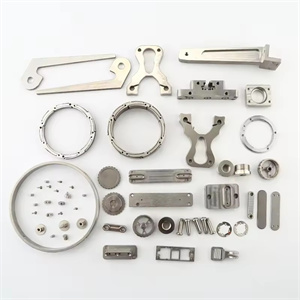CNC Milling is suitable for processing various types of products, including but not limited to the following categories:
Medical device parts: The medical device field has very high requirements for the accuracy and surface quality of parts. CNC Milling can produce various medical device parts, such as surgical instruments, implants, etc.
Optical components: including optical lenses, prisms, reflectors, and other parts, which usually require high-precision grinding and polishing to ensure optical performance and surface quality. CNC Milling can meet the machining needs of these parts.
Aerospace parts: The aerospace industry has extremely high requirements for the accuracy and strength of parts. CNC Milling is capable of producing various high-strength and high-precision aerospace parts, such as engine turbine blades, shafts, gears, etc.
High precision mechanical parts: These types of parts require high-precision machining operations such as cutting, drilling, and milling to achieve high-precision fit and surface smoothness requirements. The high-precision machining capability of CNC Milling makes it an ideal choice for such parts.
Microelectronic components: The field of microelectronics has very high requirements for the size and accuracy of components. CNC Milling can produce various microelectronic components, such as chips, lead frames, etc., to meet the demand of the microelectronics industry for high-precision and small-sized parts.
Precision instrument components: Precision instruments require extremely high precision and stability of the components. CNC Milling is capable of producing various precision instrument components, such as sensors, controllers, etc., to ensure the accuracy and stability of the instruments.
Mold parts: including the convex mold, concave mold, core, cavity and other parts of the mold. These parts usually require high-precision machining and polishing to ensure the dimensional accuracy and surface smoothness of the mold. CNC Milling can meet the processing needs of the mold manufacturing industry.
Aluminum alloy machining is a common and important manufacturing process. Aluminum alloy has advantages such as light weight, high strength, and good thermal conductivity, which makes aluminum alloy machining highly favored in many fields. Its relatively low density helps to reduce product weight and is of great significance in industries such as aerospace and automotive.
Process methods
Turning: By rotating the relative motion between the workpiece and the tool, machining of shapes such as cylinders and cones is achieved. For example, manufacturing aluminum alloy shaft parts.
Milling: used for machining flat surfaces, curved surfaces, grooves, etc. Milling technology is commonly used in the manufacturing of aluminum alloy molds.
Drilling: Drill the required holes on aluminum alloy workpieces.
matters needing attention
Tool selection: Due to the high viscosity of aluminum alloy, sharp tools with good chip removal performance should be selected.
Cutting parameters: Reasonable cutting speed, feed rate, and cutting depth can improve machining efficiency and quality.
Cooling and lubrication: Effective cooling and lubrication can reduce tool wear and heat accumulation.
